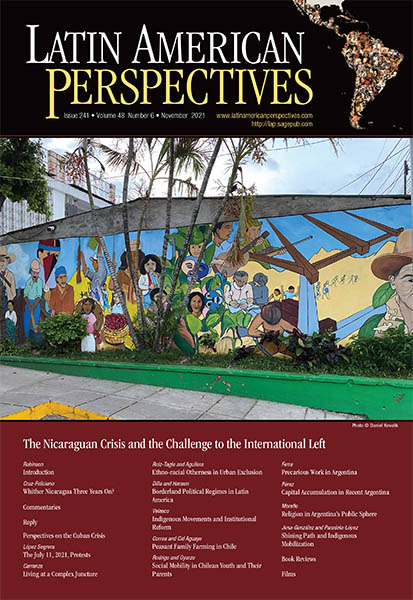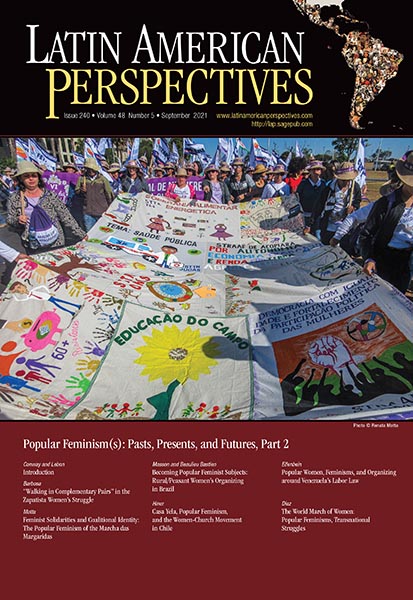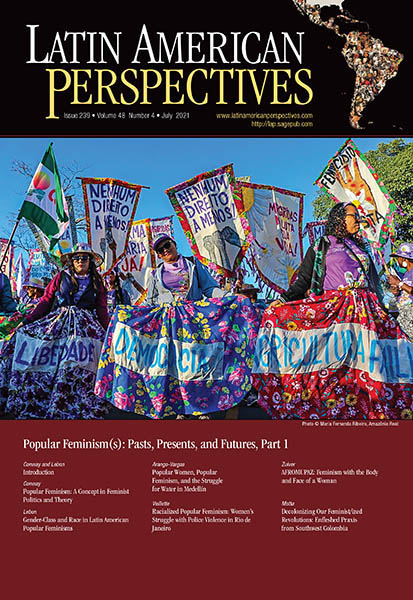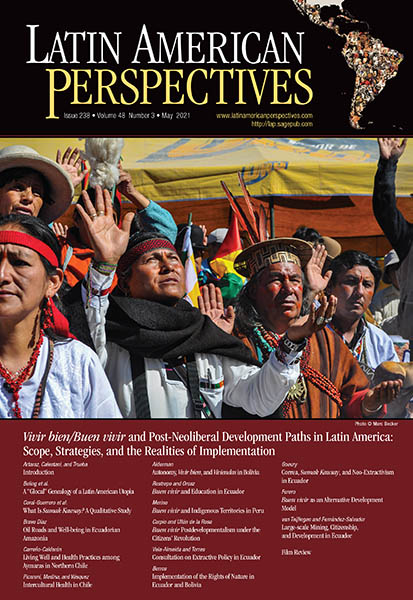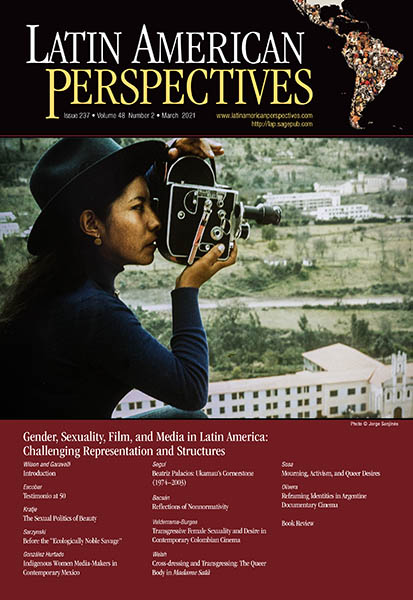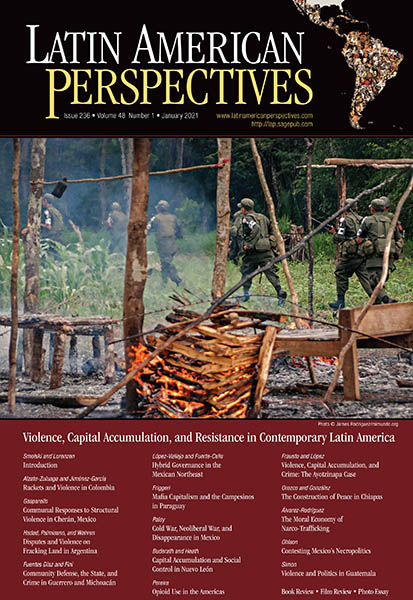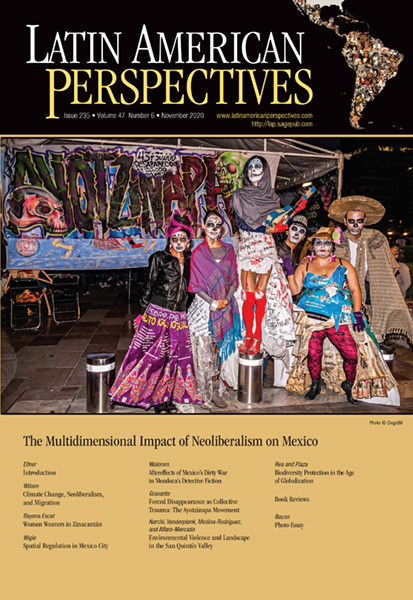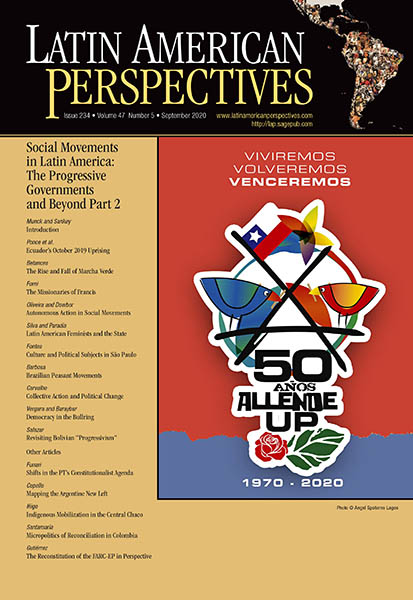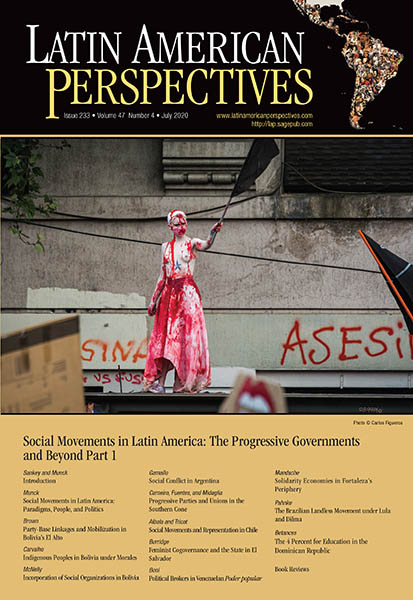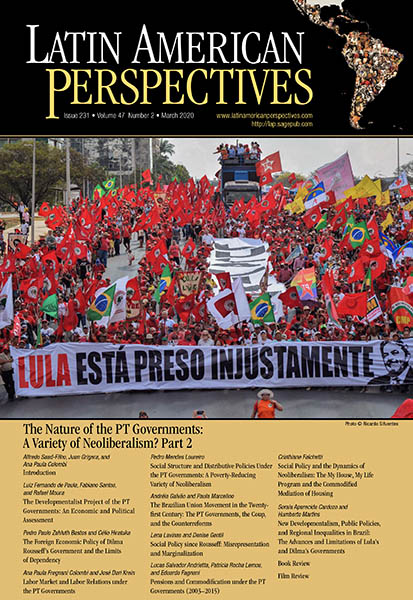The Nicaraguan Crisis and the Challenge to the Internatonal Left
November 2021 Issue Edited by: William I. Robinson Debate is heating up among scholars over the ongoing crisis in Nicaragua. For some, the Ortega-Murillo government is a continuation of the 1980s Sandinista revolution while for others it is a corrupt and nepotistic regime that has promoted capitalist expansion while carrying out harsh repression against its opponents. This symposium brings together 10 scholars who debate the crisis at a time when it is generating deep fissures among the left and progressives in and out of the academy. TABLE OF CONTENTS | PURCHASE THIS ISSUE


